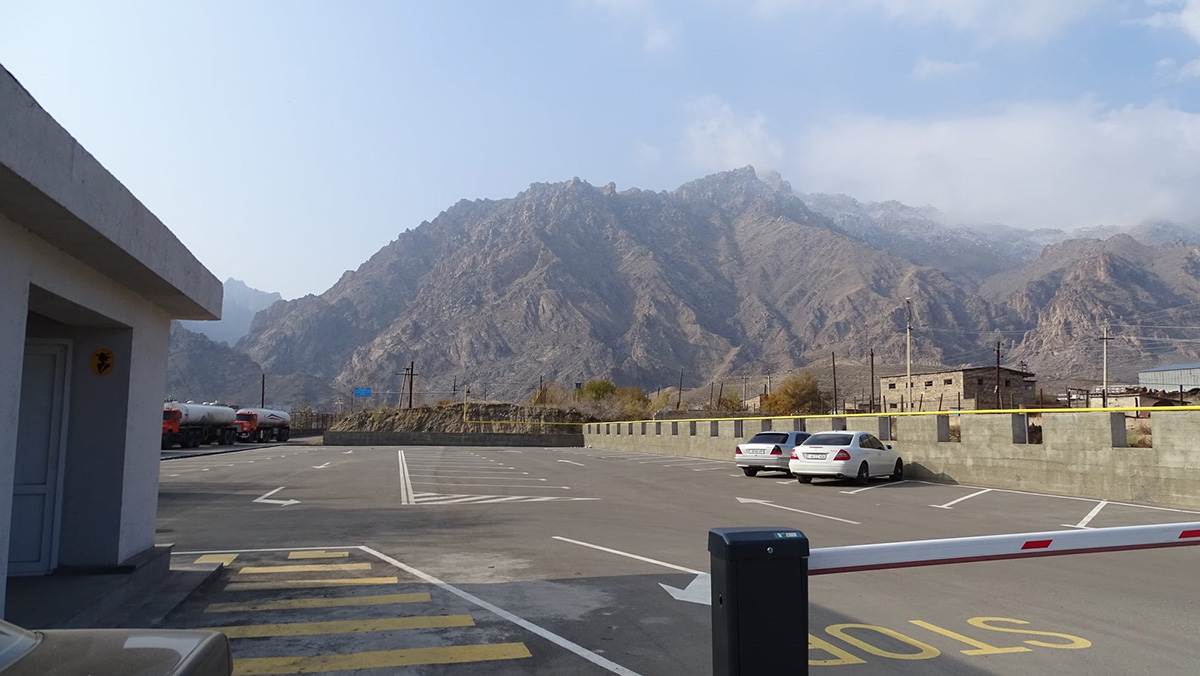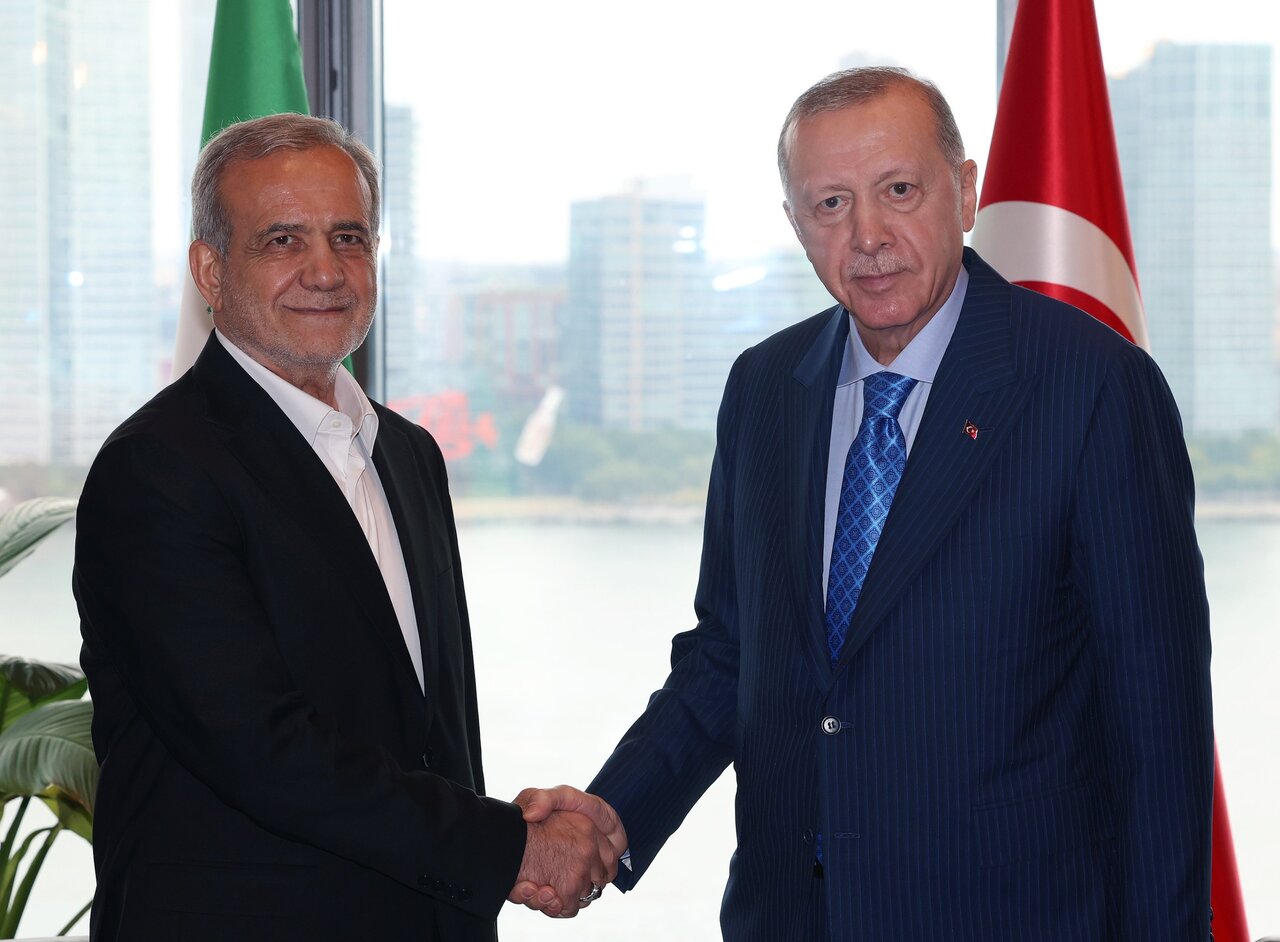"Armenia could lose control over unblocked transport routes": Opinion from Yerevan
Armenia reacts to Trump’s proposal
In recent days, the issue of unblocking regional transportation routes has being actively discussed in Armenia. The Carnegie Endowment, citing diplomatic sources, reported that US President Donald Trump’s administration proposed that Yerevan and Baku hand over control of these transport links to a private American company. However, the details of the proposal have not been disclosed.
Azerbaijan continues to insist on an extraterritorial corridor for direct land access to its Nakhichevan exclave. Armenian authorities maintain that they are ready to unblock transport routes, but stress that this must happen based on the principles of sovereignty, national jurisdiction, reciprocity, and equality.
Meanwhile, international media outlets have been reporting on a possible meeting between Armenian Prime Minister Nikol Pashinyan and Azerbaijani President Ilham Aliyev in the United Arab Emirates. While no official confirmation has been given, some analysts, citing their sources, have even named possible dates in July. Middle East Eye reports that the UAE is seeking to host the talks “as part of its efforts to improve relations between the two Caucasus nations.” The Armenian prime minister’s spokesperson, Nazeli Baghdasaryan, neither confirmed nor denied the reports.
Political analyst Tigran Grigoryan says that if such a meeting takes place, the main focus will be on the unblocking of regional communications. However, he fears that if control over the road is handed to a private American company, Armenia will in fact face the logic of a corridor. And this is considered a red line by all local political analysts.
Here’s what is known about the US proposal, statements from Armenia’s foreign ministry, and expert commentary.
- Zangezur Corridor through Armenia back in the spotlight: US plan and Azerbaijan-Russia tensions
- “South Caucasus is losing priority in Ankara’s foreign policy” – comment from Yerevan
- “No diplomatic breakthroughs”: Pashinyan and Erdogan meet in Istanbul
“The guarantor will be American business”
According to the Carnegie Endowment publication, the road would be controlled by an American company. The implementation of the agreements reached would be “guaranteed by American business and American interests.”
Olesya Vartanyan, the author of the article, explained in an interview with Radio Azatutyun (Radio Free Europe/Radio Liberty) that the proposal reflects the logic of the Trump administration:
“It implies that if there are initiatives or proposals, they should, among other things, involve American business and American capital. There is an example of this approach not far from us—in Ukraine. They have even signed an agreement regarding rare earth metals.”
According to Vartanyan, the proposal was delivered to the parties by Joshua Huck, US Deputy Assistant Secretary of State, who visited Yerevan and Baku in May. The proposal is still under discussion, and there are “various options” for how it might proceed.
What exact powers the American company would have, what specific functions it would perform, and whether it would manage the route only on Armenian territory or also on the Azerbaijani side—these questions remain unanswered.
Yerevan proposes “mutually beneficial outcomes for the region”
In response to the Carnegie Endowment publication, Armenian foreign ministry spokesperson Ani Badalyan emphasized that Armenia has been and remains interested in unblocking regional transport infrastructure. She recalled the Armenian government’s “Crossroads of Peace” initiative, which has already received positive feedback from many international partners.
“Moreover, Armenia has proposed a number of solutions under this initiative that could be acceptable to all parties involved,” she noted, without disclosing details.
Response to Erdogan’s statement on Armenia’s “flexible approach”
“Although Armenia initially opposed the Zangezur corridor, it is now demonstrating a more flexible approach toward economic integration,” said Turkish President Recep Tayyip Erdogan, without providing details.
According to Anadolu Agency, Erdogan suggested that the so-called “Zangezur corridor” would bring new opportunities not only for Azerbaijan, but for the entire region.
Commenting on his remarks, Armenian foreign ministry spokesperson Ani Badalyan stressed that Armenia has always been and remains committed to enhancing regional connectivity:
“With this understanding, Armenia presented the ‘Crossroads of Peace initiative’, along with concrete ideas, solutions, and constructive proposals. In our view, these can deliver mutually beneficial outcomes for regional countries as well as for partners interested in broader transport networks.”
However, her main message was that Armenia’s stance remains unchanged:
“As before, Armenia’s vision for unblocking regional transport infrastructure is firmly based on the principles of sovereignty and national jurisdiction over communications, and does not envision any alternative logic.”
Pashinyan counts on Trump
Armenian Prime Minister Nikol Pashinyan extended his congratulations to the US president on Independence Day, emphasizing his appreciation for Trump’s efforts to end conflicts and promote global peace:
“I am confident that under your leadership, the United States will make a significant contribution to achieving long-awaited peace, stability, and prosperity in the South Caucasus.”
Pashinyan also reaffirmed his government’s commitment to a “peace agenda based on the principles of sovereignty, territorial integrity, and the inviolability of internationally recognized borders.”
Commentary
Political analyst Tigran Grigoryan says that the issue of unblocking regional transport routes has been a priority for Washington, including under the Biden administration:
“Since summer 2024, there has been public information that a proposal is being discussed to oversee transit along this route through a private company acting as a facilitator.”
According to him, earlier discussions involved a Swiss company, but Baku rejected that option:
“At this stage, the talks are centered on an American or Armenian-American joint venture overseeing the route. Armenia’s participation in the project appears to be an Armenian proposal, primarily aimed at preventing a negative reaction from Iran.”
Grigoryan stresses the importance of clarifying the details. He warns that despite all sides formally recognizing Armenia’s sovereignty, the country could lose actual control over the route:
“We still have little information. But if Armenia delegates certain powers to this company, it could essentially introduce a ‘corridor logic.’ Even Pashinyan himself hinted at this during his meeting with the Armenian community in Turkey.”
At that meeting, Pashinyan declared that there would be no “Zangezur Corridor” and that Armenia’s “Crossroads of Peace” project would become a reality. However, he warned fellow Armenians:
“The moment the ‘Crossroads of Peace’ project is activated, Azerbaijan will say, ‘Look, the Zangezur Corridor has been opened.’ And we must be prepared for that. But any simplifications [of transit] must be within the framework of our sovereignty on our territory, and theirs on theirs. Such simplifications should be reciprocal.”
Grigoryan doubts Iran will tolerate the presence of a US company on the route, and he expects Russia to object as well:
“After its withdrawal from Nagorno-Karabakh, Russia sees the unblocking of regional routes as its last remaining tool to maintain influence over Armenia and Azerbaijan.”
He believes Baku has not yet accepted the US proposal. If the Armenian and Azerbaijani leaders meet in the UAE, the focus will likely be on unblocking the routes.
As for a peace deal, Grigoryan remains skeptical:
“I see no signs that Baku will abandon its preconditions for signing an agreement—such as its demand for constitutional amendments in Armenia. There’s little reason to expect any breakthroughs or compromises on this issue.”
Journalist Tatul Hakobyan believes it doesn’t really matter whether the unblocked roads are called a corridor, a highway, or a passage:
“The main issue is who will control the railroad and highway to be built from Azerbaijan to Nakhchivan and Turkey along the Araks River, through Meghri, on the sovereign territory of the Republic of Armenia.”
He stresses that Armenia has repeatedly publicly stated that losing control over its territory is unacceptable.
However, he adds that Armenia has now given preliminary consent to transfer about 45 kilometers of its roads and other infrastructure along the Araks River to the management of an American—or more precisely, an Armenian-American—organization:
“The Washington proposal to hand over management of the Meghri communications to an Armenian-American organization is effectively handing control to the American side. The ‘Armenian’ part [in the term Armenian-American] was inserted in the proposal in hopes of softening the anger of the Russian side and the currently weakened Iranian side.”
According to Tatul Hakobyan, Yerevan is fundamentally not opposed to Washington’s proposal, while Baku has yet to make a final decision. Because of this, he also places great importance on the bilateral Pashinyan-Aliyev meeting in the UAE.
Follow us – Twitter | Facebook | Instagram
Armenia reacts to Trump’s proposal
























